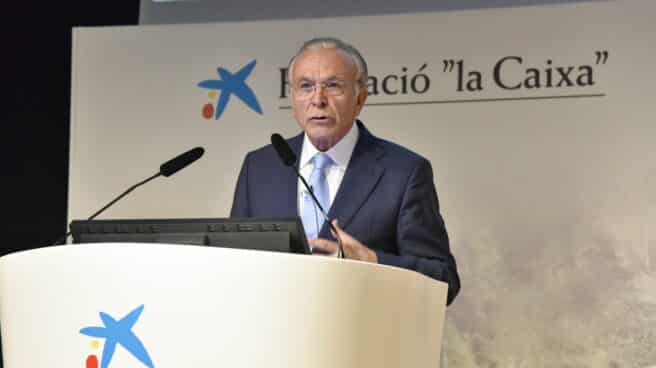

Isidro Faine, re-elected president of the La Caixa Foundation.
At the beginning of the week, the President of the Government, Pedro Sánchez, received the President of the La Caixa Foundation, Isidro Faine, at the Moncloa Palace, with whom he had the opportunity to familiarize himself with the work of the institution in areas such as Social Work and the current problems of investees, including CaixaBank, Telefónica and Naturgy, confirmed Europa Press sources familiar with the meeting.
Sources dismissed the meeting as “institutional normalcy” and framed it as meetings that a newly re-elected president holds with the country’s top businessmen.
The meeting was also attended by First Vice-President of the Government and Minister of Economy, Trade and Business Nadia Calviño.
According to a newspaper report this Friday Confidentially citing various sources, it was Faine who asked for a meeting with Pedro Sánchez after the investiture session, “realizing that La Caixa has been the object of desire of the Hunts and the ERC for many years and that independent supporters have managed to include some of these aspirations reflected in recent agreements signed with PSOE.”
Among them is a plan to facilitate and promote the return to Catalonia of the headquarters of companies that have moved to other territories in recent years. It is worth remembering that, as a result of the independence process, the La Caixa Foundation and CaixaBank moved their headquarters from Barcelona to Palma de Mallorca and Valencia in 2017, like other relevant companies. For now, CaixaBank has always ruled out the possibility of returning to Catalonia.
The meeting with Sánchez culminated in a meeting between Salvador Illa, leader of the PSC, and Juan José López Burniol, Faine’s right-hand man, according to the aforementioned newspaper.
Sources at the La Caixa Foundation, consulted by Europa Press, refrained from commenting on the matter.
Sanchez and Calviño had the opportunity to learn from Faine about the Foundation’s major social and business projects and agreed on the importance of preserving and maintaining this work in the future.
In addition, according to sources familiar with the meeting, there was also an opportunity to learn about the current affairs of the Fund’s investees, including Telefónica, in whose capital the State Society for Industrial Participation (SEPI), dependent on the Ministry of Finance, acknowledged this study is betting.
The intention is to mobilize resources to achieve 5% and a presence on the board of directors with the aim of maintaining the Spanish “core” of the company, which includes, in addition to La Caixa with 4.879% and its investments. Arm Criteria with 2.51%, BBVA with 4.839%, BlackRock with 4.983% and STC with 4.9% and 5% in derivatives, according to reports from the National Securities Market Commission (CNMV).
SEPI’s move, which will require an investment of more than 1 billion euros, comes as a reaction to the surprise emergence on September 5 of this year of the Saudi group taking over Telefónica, which could change the balance of power in the company. Spanish, which the government considers strategic.
In the case of CaixaBank, it is worth remembering that the state is present in its shareholding through the Fund for the Orderly Restructuring of Banks (FROB), with more than 17% of the capital resulting from the takeover of Bankia, an organization rescued by the government and which required state resources of 20 billion euros.
Although the government’s original intention was to divest from the FROB, maximizing the recovery of taxpayer relief, at this time this sale operation has not been activated and it is expected that the current chief executive will evaluate the merits of retaining the capital of a leading Spanish financial institution .
As for Naturgy, the company has on the horizon its “Project Gemini”, which involves splitting the group into two listed companies: one for the liberalized business (Naturgy MarketsCo) and the other for the regulated business (Naturgy Networks), which is not true. the sympathy of the Third Vice-President and Minister of Ecological Transition Teresa Ribera.
In fact, the energy company’s president, Francisco Reines, recently asserted his right to run the group freely and autonomously, convinced of the convenience of an operation that also has the support of a stable core of shareholders.
Source: El Independiente